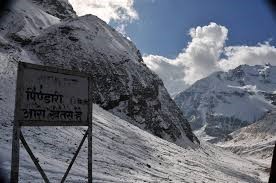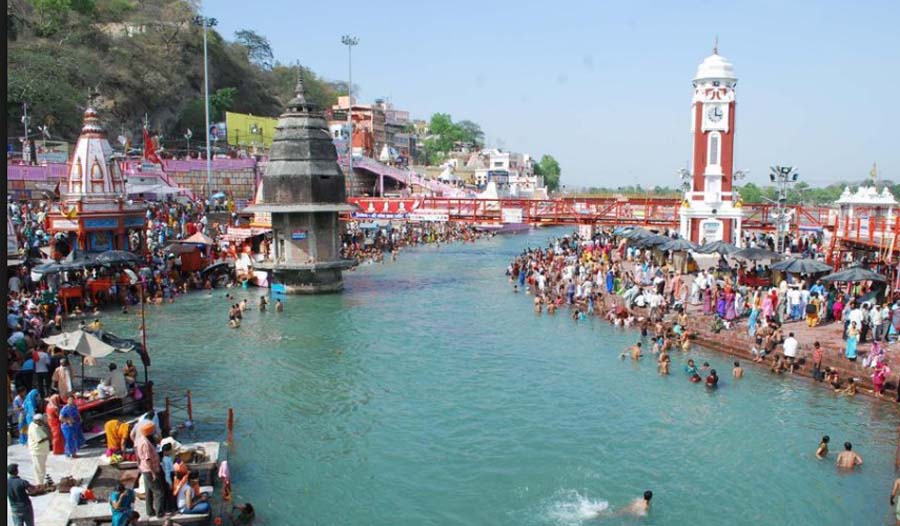
Effects after the Abrogation of Article 370 on Militancy in Jammu and Kashmir
Effects after the Abrogation of Article 370 on Militancy inJammu and Kashmir.Introduction The abrogation of Article 370 by the Central government on 5 August 2019 represented a pivotal moment in the long-standing conflict in Jammu and Kashmir. The decision was to revoke the special status of Jammu and Kashmir under the Constitution and bifurcate it into the Union Territories of Jammu and Kashmir and Ladakh.[1] Since the independence of Jammu and Kashmir, they have become disputed territories between India and Pakistan. The region has witnessed massive attacks on political and civil liberties.[2] One of the most critical situations occurred in Jammu and Kashmir since the beginning of the insurgency in 1989 or the 1998 nuclear test by India and Pakistan, which elevated concerns over potential nuclear flashpoints.[3] The stability of the valley is crucial for the tranquility and stability of the entire South Asian region. It reminded the statement made by former American President Bill Clinton in 2000, who referred to the region as "the most dangerous place in the world," decades after which elevated concerns over potential nuclear flashpoints for use of weapons of massive disruption.[4]Jammu and Kashmir: A "historic background". Jammu and Kashmir have been a constant source of tension since the independence and partition of India and Pakistan. Indian history is incomplete without the historical events of Jammu and Kashmir. The history of the conflict between India and Pakistan and the history of militancy are predominantly Kashmir-centric. At that time, approximately 565 princely states were presented with the option to join either India or Pakistan, with the decision primarily based on religious demographics and geographical location. While Hindumajority states ultimately aligned with India and Muslim-majority states with Pakistan, a significant issue arose when the British refused to allow the independence of Jammu and Kashmir and its partition. The Maharaja Hari Singh who was the last ruler of the Dogra Dynasty of Jammu and Kashmir state sent telegrams to both countries for the standstill agreement so that to maintain normal relations.[5] Pakistan reacted quickly by accepting the standstill agreement and the delay from India to the acceptance of the standstill agreement. Shortly after the independence Pakistan continuously tried to grab, the violence in Jammu and Kashmir has led to the loss of many lives and displacement of many families.[6] The Maharaja of Jammu and Kashmir asked help from the Indian Government to seek protection. Then Maharaja of Jammu and Kashmir signed the Instrument of Accession (IOA) with the Indian Government in three areas, including communication, Defence, and External Affairs, and ancillary matters. This means the four matters representative was reflected in Article 370 which the Indian Constitution Assembly drafted.[7] The provision of Article 370 under Part XXI of the Indian Constitution is Temporary and Transitional, based on the terms of the Instrument of Accession, which was signed by Maharaja Hari Singh in 1947 to join India after an invasion by Pakistan.[8] The Indian Constitution provided for a special status of Jammu and Kashmir, the power to have a separate constitution and a state flag, and autonomy over the internal administration of Jammu and Kashmir. Not all the provisions of the Indian Constitution apply to Jammu and Kashmir.[9] However, Article 35-A, which was introduced through the Constitution Order, issued by the president under Article 370, demarcated permanent residents which granted special privileges. Under Article 35-A, the non-permanent resident cannot own property in Jammu and Kashmir, and outsiders can’t obtain a state government job in Jammu and Kashmir.[10]Effect of the abrogation of Article 370 With the abrogation of Article 370, militants are finding it difficult to operate in Kashmir, they have moved towards specific areas to keep the proxy war alive. When the special status abrogated the Indian Constitution militant activity is decreased. The Union Home Minister Amit Shah's statement is “ 66 percent decline in terrorist incidents in Jammu and Kashmir after the abrogation of Article 370 in Jammu and Kashmir”. [11] The development and stability taking peace compared to the past. However, After the abrogation of Article 370, the militants altered their approach by focusing primarily on local requirements. They shifted their attention to targeting nonlocals, modified their method of communication, and spread disinformation. At that time, the situation in Jammu and Kashmir underwent a significant transformation, with widespread protests erupting in various parts of the region. In response, strict security measures were implemented, such as curfews and communication blackouts, which severely restricted Internet and mobile services. These measures, coupled with an increased military presence, had a profound impact on education and the daily lives of civilians.[12] The study was also conducted before and after the revocation of special status in Jammu and Kashmir. There was visible growth in the economy of Jammu and Kashmir as skills developed. The important development in Jammu and Kashmir which changes the security scenario in the post-abrogation period; Employment Opportunity Youth unemployment was alarmingly high in Jammu and Kashmir due to limited resources in the region. The main barrier was militancy and armed conflict in Poonch and Rajouri as it resided in the borders of Pakistan. The abrogation of Article 370 aims to encourage private sector investment in the new Union Territory. The development of the horticulture sector in Jammu and Kashmir plays a significant role in generating employment, increasing income levels, promoting exports, reducing poverty, and maintaining the environment.[13] The horticulture sector holds substantial importance for the region's economic growth and overall well-being of Jammu and Kashmir. Quality of Education Under the special provision, the education sector in the region faced significant challenges due to the armed conflict and security issues in the region. The prolonged period of unrest and violence had a detrimental impact on the overall functioning of educational institutions. Schools and colleges were frequently disrupted, leading to intermittent closures and hampering the continuity of the learning process. With the abrogation of Article 370 in August 2019, which revoked the special status of Jammu and Kashmir, the situation in the region underwent a significant transformation. The central government aimed to bring about development and normalcy in various sectors, including education. With the removal of the constitutional provision, the administration sought to implement reforms and initiatives to revive and strengthen the education system.[14] The government took steps to improve infrastructure, introduce new educational policies, and enhance the overall quality of education in the region. Efforts were made to provide better facilities, recruit more teachers, and introduce modern teaching methodologies. Additionally, measures were taken to ensure the safety and security of students and educational staff, creating an environment conducive to learning. However, the transition period following the abrogation of Article 370 also brought challenges, as the region grappled with political uncertainties and potential disruptions. The successful implementation of educational reforms and the restoration of normalcy in the education sector will require continued efforts, resources, and a stable environment for learning and teaching. Tourism Industry Tourism plays a pivotal role in the case of Rajouri and Poonch because regional economy. Rajouri and Poonch are mostly upon the traditional form of occupation, unaffected and unaltered. However, the conflicts and militancy that arose in the region adversely impacted the region's economic stability and employment opportunities. The revocation of the special status holds considerable potential for the travel and tourism industry in Jammu and Kashmir, as it now allows outsiders to invest in the region's real estate market.[15] Increased private investment in tourism is expected to generate more income, create more jobs, bolster business opportunities for local communities, enhance living standards, draw in further investment, broaden income sources for households, and promote the preservation of cultural heritage sites. It would also contribute to foreign exchange earnings. The youth of the area anticipate significant advancements in tourism development shortly, and this development will be supported by the robust infrastructure that is expected to be provided by the regional government. This government will be responsible for supplying the necessary infrastructure, transportation facilities, tourism policies, and financial investments that are required to facilitate this growth.[16]The government's role in creating an enabling environment for tourism is crucial for the sector's development in Jammu and Kashmir. Investment Under the provisions of Article 370, investment in Jammu and Kashmir. Restricted investment restricted the ability of non-residents and companies from outside the state to acquire properties or invest in Jammu and Kashmir. This limited external investment and economic opportunities in the region.Limited industrial growth. The state had a relatively underdeveloped industrial sector due to various factors, including legal restrictions, security concerns, and a lack of private investment. Dependence on agriculture and tourism.[17] The economy was heavily reliant on agriculture and tourism, with limited diversification into other sectors. After the Abrogation of Article 370 removal of investment barriers. With the abrogation, the legal barriers to investment in Jammu and Kashmir were removed. This opened up the region to external investment from other parts of India and abroad. Increased interest from investors several companies and investors expressed interest in exploring investment opportunities in the region, particularly in sectors like real estate, hospitality, healthcare, and infrastructure.[18] Announcement of incentives to attract investment the Indian government announced various incentives and schemes, such as tax benefits. Recommendation Before the abrogation of Article 370, several problems, including the undeveloped area, Lack of modern agriculture techniques, and Negligible enterprise development in the area. With the non-availability of raw materials for the setup of industry and less proximity to market development, the region is dependent upon the outside supply of consumable goods. The revocation of Article 370, which stripped the region of its special constitutional status, has changed to counter the terror activities in Jammu and Kashmir. In response, the Indian government has taken decisive steps by deploying additional security forces to maintain law and order. This heightened security presence is specifically aimed at countering potential militant threats. The government has intensified its efforts to clamp down on militant groups operating in the region. Counter militancy – After the abrogation of Article 370 Indian government continuously tried to counter the militancy in Jammu and Kashmir. The government employed a multi-pronged strategy involving security operations, development initiatives, and efforts to address. It aims Economic development – Economic development in Jammu and Kashmir aimed to boost investment, infrastructure projects, and employment opportunities. The BJP government removed certain barriers that had previously restricted land acquisition and the private sector. Maintain law and order – Maintaining law and order after the abrogation of Article 370 to maintain peace in the region, aimed at safeguarding public order, ensuring a robust security presence, and implementing conflict resolution measures. Robust Border Management- Robust border management in Jammu and Kashmir involves improving the situation multiple. To deploy advanced surveillance technologies like thermal imaging cameras, unattended ground sensors, and drone patrols to monitor remote areas. Coordinated efforts between various security forces - including the Army, Border Security Force, and local police - ensure comprehensive coverage. Intelligence gathering and sharing mechanisms are enhanced to preempt infiltration attempts. Additionally, engaging local communities in border areas as stakeholders in security efforts helps create a more effective and sustainable border management system in the area. Conclusion The several decades of militancy in Jammu and Kashmir were considered one of the most dangerous periods, and this was considered a major reason for the revocation of the special status previously granted to the region. The economic backwardness in the region scattered population, low degree of urbanization, poor connectivity, and mountainous and widespread illiteracy. The government of India revoked on 5th August 2019 the primary reason to improve the economic development encompasses fostering an environment conducive to sustained economic growth, creating employment opportunities, improving infrastructure, and promoting education and skill development in the particular region.
Reference:-
[1]. Sebastian M. & Hrishikesh S., ‘Article 370: India Supreme Court upholds repeal of Kashmir's special status’, BBC News, 11 December 2023, [2] Blakemore E, The Kashmir conflict: How did it start? National Geographic, 3 March 2019[3] Ahmad B., A Study on Jammu and Kashmir Present, Past and Views of Students on Article 370 Abrogation, (IJLRHSS), December 2019,[4] Dittmer L., ‘SOUTH ASIA’S SECURITY DILEMMA’, JSTOR, November/ December 2001[5] Sagar D., Jammu and Kashmir A Victim, Ocean Books, 2015[6] Ahmad B., ‘A Study on Jammu and Kashmir Present, Past and Views of Students on Article 370 Abrogation’, Research Gate, January 2019https://www.gktoday.in/gk-current-affairs-quiz-questions-answers/[7] GKTODAY, Article 370 of the Indian Constitution, May 2021, [8] Charan R.A ABROGATION OF THE ARTICLES 370 AND35[A]: A STUDY IN THE CONTEXT OF RECENT DEVELOPMENT AND FUTURE OF THE STATE, Research Inspiration, 30 June 2021, [9] Buchanan K., ‘Article 370 and the Removal of Jammu and Kashmir’s Special Status’, 3 October [10] Drishtiias, Article 370 and 35(A) Revoked, 2024, [11] Lalwani P., ‘India’s Kashmir Conundrum: Before and After the Abrogation of Article 370’, United States Institute of Peace, 2020 [12] Pathak M., The Revocation of Article 370 in Indian Constitution: An Analysis of the Socio-Political and Economic Effects after Withdrawal of the Article in Jammu and Kashmir, Journal of Positive School Psychology, 2022[13] Sofia Aslam, Falendra Kumar Sudan, Youth Aspirations and Expectations of Economic Recovery of Jammu and Kashmir in India after Abrogation of Article 370, 4 June 2021[14][14] Anupama Watkar, 2019 “Impact on education after the abrogation of Article 370, December-2019 [15] Welcome to the Department of Tourism,Department of Tourism, Government of Jammu and Kashmir [16] Sharaz Ahmed Malik, , Development Of Difficult Region Through Travel, Trade, And Tourism: A Case Study Of Twin Border Districts Rajouri And Poonch on Research Gate, April 2013[17] Deepatiwan Tiwari, 2023, In 3 years, J-K got Rs 84,544 crore investment proposals, actual investment so far Rs 2,518 crore, The Indian Express [18] Tariq Rather, 11 Sep 2020, Abrogation of Article 370 of the Constitution of India: Socio-Economic and Political Implications on Jammu and Kashmir, SSRN, 11 Sept 2020

By: Ms. Neha Kaushal Research Scholar
24 April, 2025


.png)



